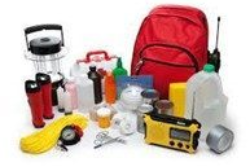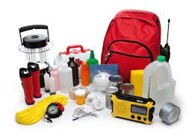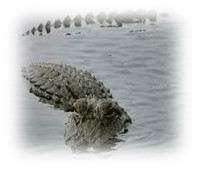
Hurricane season starts June 1st and ends November 30th.
A few guidelines to help you prepare and keep safe – – BEFORE, DURING and AFTER a storm.
BEFORE
- Know your risk and zone. Are you in a Hurricane Evacuation Zone or FEMA Flood Zone?
- Pick a meeting place outside your neighborhood in case you cannot get home or you get separated from your family members.
- Delegate an emergency contact person.
- Prepare a disaster supply kit with some of the most important items for basic survival:

- Prescriptions (at least a two-week supply), non-perishable food to feed you, your family, and your pets for 3-7 days. Special dietary foods such as baby formula.
- One gallon of drinking water per person, per day, plus water for cooking.
- First aid kit, blankets, portable can opener, batteries, portable radio, flashlights, water purification kit, sunscreen, mosquito repellant, basic hygiene items, matches, fuel.
- Cash
- Store all outdoor furniture, potted plants, bicycles, trash cans, and other airborne missiles.
- Protect your glass doors/windows by boarding the outside with plywood and closing all blinds inside.
- Fill your car gas tank and check the oil, fluids, and tires.
DURING
If you decide to evacuate:
- Take your supplies and pets (do not forget their supplies), take irreplaceable and sentimental items.
- Make sure your neighbors have a safe ride or a place to go.
- Pet friendly evacuation centers will require proof of pet vaccinations.
If you decide to stay:
- Find a safe room in the home, usually an interior, windowless reinforced room such as a closet or bathroom on lower floor.
- Monitor your radio and do not leave the room until official word is issued that the danger for your zone is over.
AFTER
- Be patient: you will not be able to return to your home until all search and rescue operations are complete and safety hazards, such as downed power lines, are cleared.
- Avoid driving, especially through water – roads may have debris.
- Enter all buildings with caution and survey all damage. Take photos.
- Be extremely cautious with fire in case of any gas leaks. Do not burn trash.
- NEVER connect a portable generator to building wiring.
 DO NOT WADE IN FLOOD WATERS
DO NOT WADE IN FLOOD WATERS
Be aware of snakes, insects, alligators, or
other animals driven to higher grounds by floods.
After a disaster you may be without power and many other services you rely on, including water, sewer, phone, businesses, etc. Immediate response may not be possible, so you must be prepared to be self-reliant. It takes a team effort to clean up after a storm – as hard as it may be, try to be patient.
#PMISarasota #Hurricanepreparedness #Rentals #Disasterpreparedness

